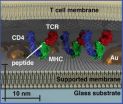(Press-News.org) MINNEAPOLIS – People with more years of education may be better able to recover from a traumatic brain injury, according to a study published in the April 23, 2014, online issue of Neurology®, the medical journal of the American Academy of Neurology.
The study examined people with moderate to severe traumatic brain injuries, most of which were from motor vehicle accidents or falls. All were taken to the emergency department and spent time in the hospital after the injury and also for inpatient rehabilitation.
"After these types of injuries, some people are disabled for life and are never able to go back to work, while other people who have similar injuries recover fully," said study author Eric B. Schneider, PhD, of Johns Hopkins School of Medicine in Baltimore, Md., and a member of the American Academy of Neurology. "We understand some factors that lead to these differences, but we can't explain all of the variation. These results may provide another piece of the puzzle."
The cognitive reserve theory is that people with more education have a greater cognitive reserve, or the brain's ability to maintain function in spite of damage. The concept has emerged for brain disorders such as Alzheimer's disease, where people with higher levels of education have been shown to have fewer symptoms of the disease than people with less education, even when they have the same amount of damage in the brain from the disease. But few studies have looked at how cognitive reserve may affect traumatic brain injury.
The study involved 769 people at least 23 years old and who had been followed for at least a year after their injury. Participants were grouped by education level. A total of 185 participants, or 24 percent, did not finish high school; 390, or 51 percent, had 12 to 15 years of education, or had finished high school and some post-secondary education; and 194, or 25 percent, had obtained at least an undergraduate degree, or had 16 or more years of education.
One year after the injury, 219 of the participants, or 28 percent, had no disability and were able to return to work or school. Only 23 people, or 10 percent, of those with no high school diploma were free of disability, compared to 136, or 31 percent of those with some college education and 76, or 39 percent, of those with a college degree.
"People with education equal to a college degree were more than seven times more likely to fully recover from their injury than people who did not finish high school," Schneider said. "And people with some college education were nearly five times more likely to fully recover than those without enough education to earn a high school diploma. We need to learn more about how education helps to protect the brain and how it affects injury and resilience. Exploring these relationships will hopefully help us to identify ways to help people recover better from traumatic brain injury."
INFORMATION:
Collection of the data used for this study was supported by the National Institute on Disability and Rehabilitation Research and the U.S. Department of Education.
To learn more about traumatic brain injury, please visit http://www.aan.com/patients.
The American Academy of Neurology, an association of more than 27,000 neurologists and neuroscience professionals, is dedicated to promoting the highest quality patient-centered neurologic care. A neurologist is a doctor with specialized training in diagnosing, treating and managing disorders of the brain and nervous system such as Alzheimer's disease, stroke, migraine, multiple sclerosis, brain injury, Parkinson's disease and epilepsy.
For more information about the American Academy of Neurology, visit http://www.aan.com or find us on Facebook, Twitter, Google+ and YouTube.
Media Contacts:
Rachel Seroka, rseroka@aan.com, (612) 928-6129
Michelle Uher, muher@aan.com, (612) 928-6120
People with more education may recover better from traumatic brain injury
2014-04-23
ELSE PRESS RELEASES FROM THIS DATE:
Study examines risk of early death for people with mild cognitive impairment
2014-04-23
PHILADELPHIA – One of the first studies to look at a relationship between death and the two types of mild cognitive impairment (MCI), or problems with memory and thinking abilities, suggests that people who have thinking problems but their memory is still intact might have a higher death rate in a period of six years compared to those who have no thinking or memory problems. The research was released today and will be presented at the American Academy of Neurology's 66th Annual Meeting in Philadelphia, April 26 to May 3, 2014. The same was suggested in the study for those ...
Marijuana use may increase heart complications in young, middle-aged adults
2014-04-23
Marijuana use may result in cardiovascular-related complications — even death — among young and middle-aged adults, according to a French study reported in the Journal of the American Heart Association.
"In prior research, we identified several remarkable cases of cardiovascular complications as the reasons for hospital admission of young marijuana users," said Émilie Jouanjus, Pharm.D., Ph.D., lead author of the study and a medical faculty member at the Centre Hospitalier Universitaire de Toulouse in Toulouse, France. "This unexpected finding deserved to be further analyzed, ...
Higher education associated with better recovery from traumatic brain injury
2014-04-23
Better-educated people appear to be significantly more likely to recover from a moderate to severe traumatic brain injury (TBI), suggesting that a brain's "cognitive reserve" may play a role in helping people get back to their previous lives, new Johns Hopkins research shows.
The researchers, reporting in the journal Neurology, found that those with the equivalent of at least a college education are seven times more likely than those who didn't finish high school to be disability-free one year after a TBI serious enough to warrant inpatient time in a hospital and rehabilitation ...
Rural microbes could boost city dwellers' health
2014-04-23
The greater prevalence of asthma, allergies and other chronic inflammatory disorders among people of lower socioeconomic status might be due in part to their reduced exposure to the microbes that thrive in rural environments, according to a new scientific paper.
The article, published in the journal Clinical & Experimental Immunology, argues that people living in urban centers who have less access to green spaces may be more apt to have chronic inflammation, a condition caused by immune system dysfunction.
When our immune systems are working properly, they trigger inflammation ...
Princeton release: Not just the poor live hand-to-mouth
2014-04-23
When the economy hits the skids, government stimulus checks to the poor sometimes follow.
Stimulus programs — such as those in 2001, 2008 and 2009 — are designed to boost the economy quickly by getting cash into the hands of people likely to turn around and spend it.
But sending cash to just the very poor may not be the right approach, according to researchers from Princeton University and New York University who analyzed information on the finances of U.S. households from 1989 to 2010.
"What we found is that households that have the lowest liquid wealth — where ...
NASA satellites show drought may take toll on Congo rainforest
2014-04-23
A new analysis of NASA satellite data shows Africa's Congo rainforest, the second-largest tropical rainforest in the world, has undergone a large-scale decline in greenness over the past decade.
The study, led by Liming Zhou of University at Albany, State University of New York, shows between 2000 and 2012 the decline affected an increasing amount of forest area and intensified. The research, published Wednesday in Nature, is one of the most comprehensive observational studies to explore the effects of long-term drought on the Congo rainforest using several independent ...
WSU innovation improves drowsy driver detection
2014-04-23
SPOKANE, Wash.—Researchers at Washington State University Spokane have developed a new way to detect when drivers are about to nod off behind the wheel.
Their recently patented technology is based on steering wheel movements—which are more variable in drowsy drivers—and offers an affordable and more reliable alternative to currently available video-based driver drowsiness detection systems.
Van Dongen"Video-based systems that use cameras to detect when a car is drifting out of its lane are cumbersome and expensive," said Hans Van Dongen, research professor at the WSU ...
Study: Iron consumption can increase risk for heart disease
2014-04-23
A new study from the Indiana University School of Public Health-Bloomington has bolstered the link between red meat consumption and heart disease by finding a strong association between heme iron, found only in meat, and potentially deadly coronary heart disease.
The study found that heme iron consumption increased the risk for coronary heart disease by 57 percent, while no association was found between nonheme iron, which is in plant and other non-meat sources, and coronary heart disease.
The study was published online ahead of print in the Journal of Nutrition. Along ...
First size-based chromatography technique for the study of living cells
2014-04-23
Using nanodot technology, Berkeley Lab researchers have demonstrated the first size-based form of chromatography that can be used to study the membranes of living cells. This unique physical approach to probing cellular membrane structures can reveal information critical to whether a cell lives or dies, remains normal or turns cancerous, that can't be obtained through conventional microscopy.
"We've developed membrane-embedded nanodot array platforms that provide a physical means to both probe and manipulate membrane assemblies, including signaling clusters, while they ...
Hearing quality restored with bionic ear technology used for gene therapy
2014-04-23
VIDEO:
This shows regenerated auditory nerves, after gene therapy.
Click here for more information.
Researchers at UNSW Australia have for the first time used electrical pulses delivered from a cochlear implant to deliver gene therapy, thereby successfully regrowing auditory nerves.
The research also heralds a possible new way of treating a range of neurological disorders, including Parkinson's disease, and psychiatric conditions such as depression through this novel way of delivering ...




